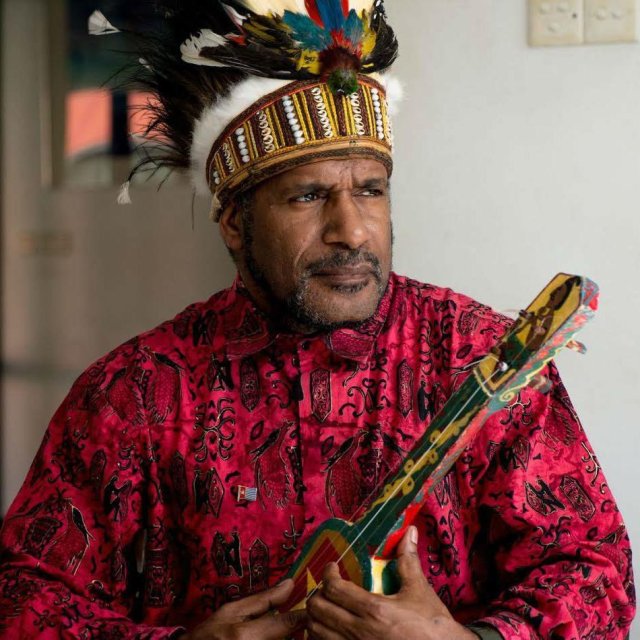
Papua New Guinea marked its independence from Australia — achieved in 1975 — on September 16. But West Papua, a province on the same island, continues its struggle for self-determination in one of the world’s least publicised and longest-running independence struggles.
West Papuans won their independence from Dutch colonialism in 1963, but the country was invaded by Indonesia and officially annexed in 1969 after a controversial referendum in which just over 1000 people voted.
That has led to decades of tension between Indonesia and West Papuans, who say the relationship is neo-colonial. Indonesian rule is fraught with violence, economic exploitation and injustice.
“Indonesia is able to massacre my people,” said Benny Wenda, an exiled West Papuan Indigenous leader. “Almost 500,000 men and women have been killed. While I’m speaking there are arrests and intimidations and imprisonments still going on in West Papua.” That figure is consistent with human rights organisations' estimates.
Wenda said West Papuans essentially live in an apartheid state, or a political system reminiscent of Jim Crow in the US Deep South. Without freedom of assembly, for instance, West Papuans cannot legally protest and organise social movements, Wenda said.
As a result, there are 54 West Papuan political prisoners jailed by Indonesia. In the past three years, 27 activists have been killed, nearly half this year alone.
Wenda pointed to Indonesian forces targeting and killing young West Papuan high school boys, almost as a pre-emptive strike. “They just sacrifice their lives, just peacefully marching. But Indonesia, they don’t like it peacefully, they want violence … Still today, Indonesia gets away with impunity.”
Wenda said that countries with their own history of racial strife — most notably the US, Australia and New Zealand — helped to train some of Indonesia’s “anti-terrorist” forces that have killed several activists.
Wenda said that West Papua’s struggle remained largely unknown because “for the last 50 years we have been fighting with the Indonesian government to gain our freedom, but for 50 years Indonesia has been able to ban journalists”. Journalists from the BBC and ABC have only been able to enter West Papua undercover, despite Indonesia’s assertion that it allows journalists in.
International aid groups such as the Red Cross and the International Peace Brigade have also been banned in the province by Indonesian authorities, said Wenda. Instead, West Papuans have increasingly turned to social media to portray their struggle to the world.
From September 30 to October 30, “Rockin’ for West Papua” events will take place across Australia and other parts of the world.
Wenda said the musical events offer the movement “a weapon” to help fight Indonesian rule, “because in all parts of the world music is powerful, it can change opinions and through the music people can be inspired”.
West Papuan independence leaders have been continually gaining support and solidarity from other nations in the region to advance the fight. “Currently our focus is targeting the Pacific countries, we hope we can do our best to mobilise globally,” Wenda said.
The Pacific Coalition on West Papua was established in July. It includes representatives from the governments of the Solomon Islands, Vanuatu, Tuvalu and Nauru. The Melanesian Spearhead Group, and to a lesser extent the Pacific Island Forum, have also given their support to West Papua.
Wenda said that he and other West Papuan representatives planned to travel to the United Nations to raise the issue of independence.
“I am really confident that people in the Pacific — particularly across the Micronesia, Polynesia and Melanesia — the governments and the ordinary people are in support, including New Zealand and Australia,” said Wenda. “Ordinary people are always with us.”
Wenda said that the West Papua fight had many things in common with other regional independence movements, such as Guam and New Caledonia, as well as the struggles against oppression in Palestine and Western Sahara.
“I think that it is a common struggle with the same sentiment, I hope that people out there, you know the good-hearted people, we need their support because this fight is a part of humanity.”
[Abridged from TeleSUR English.]
Like the article? Subscribe to Green Left now! You can also like us on Facebook andfollow us on Twitter.